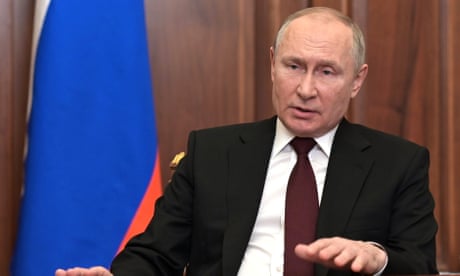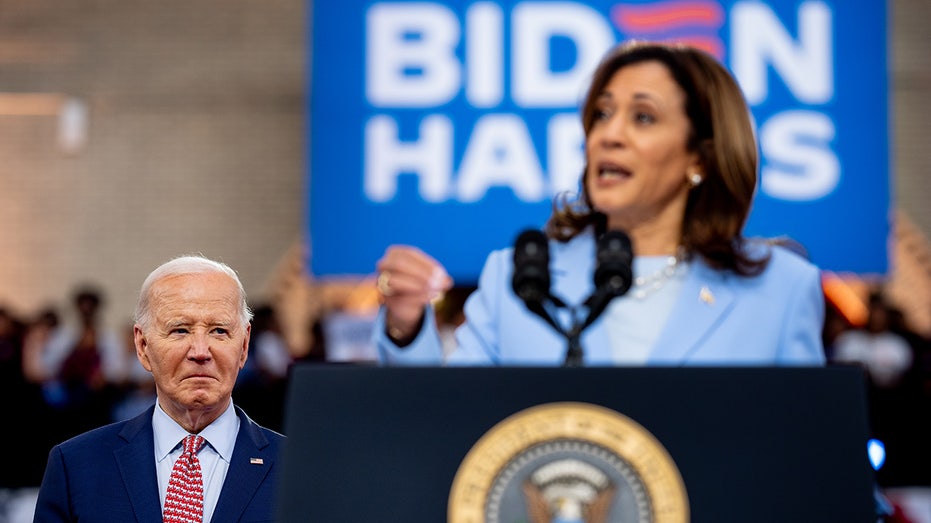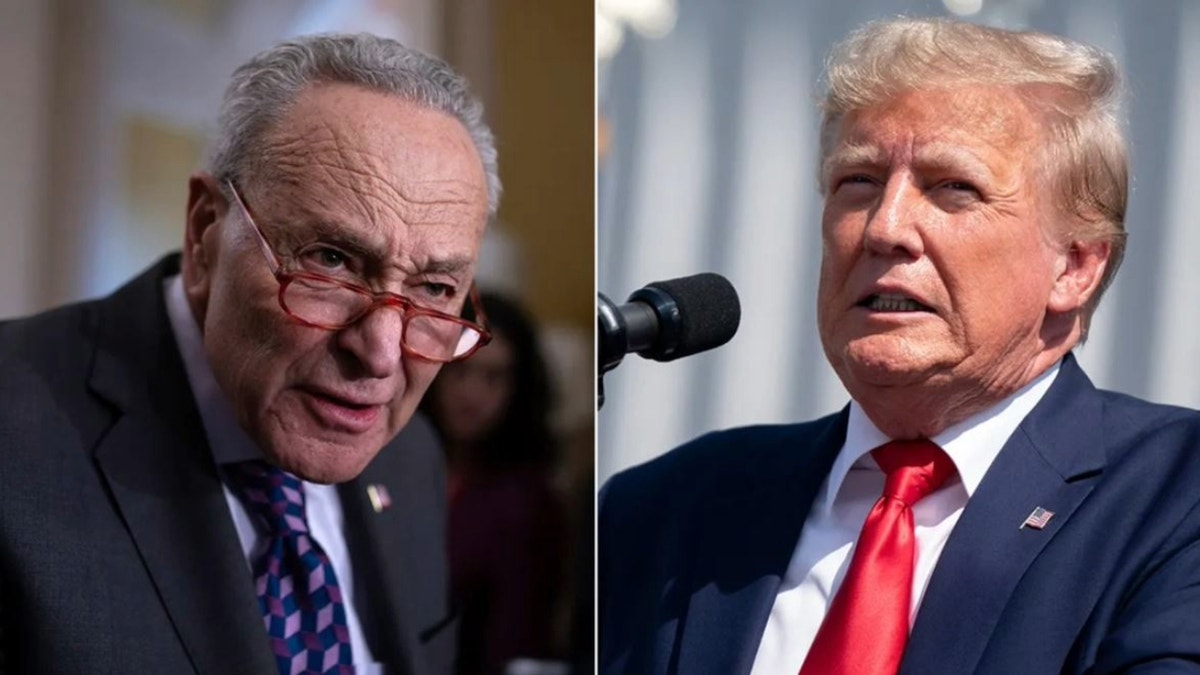- by foxnews
- 14 Mar 2025
Putin’s rambling Ukraine speech leaves western diplomats scrambling
Putin’s rambling Ukraine speech leaves western diplomats scrambling
- by theguardian
- 23 Feb 2022
- in news

Vladimir Putin's angry and rambling hour-long potted history of Ukraine's failings on Monday night, culminating in a commitment to recognise the self-proclaimed republics in Donetsk and Luhansk, left western diplomats scratching their heads and wondering whether they had been made redundant.
The Russian president not only said he would recognise Russian-controlled territory in Ukraine, rendering eight years of negotiations over their future pointless, but he also signalled that Russia could not tolerate an independent Ukraine on its borders. Nato was hardly mentioned. His target at one point seemed to be the Bolsheviks, for relinquishing land to the nationalists.
The lecture was a far cry from a statement from Emmanuel Macron's office 24 hours earlier saying the French and Russian leaders had "made firm commitments to carry out all useful actions to avoid escalation, reduce risks and preserve peace".
Putin said the self-declared republics needed defending from the threat of "genocide", and parts of Ukraine must be purged of corruption, cells of extremists, and the threat of nuclear weapons being pointed "only in a matter of time" at Moscow.
"Ukraine is an inalienable part of our own history, culture and spiritual space," Putin said. "These are our comrades, those dearest to us - not only colleagues, friends and people who once served together, but also relatives, people bound by blood, by family ties."
Much of what was said was a rehash of an article he wrote last summer, but it has become clear this ideology is now guiding his actions and he needs to be taken literally and seriously.
Following the logic of Putin's speech, it seems only a matter of time before a full invasion of Ukraine to reunite the two peoples will have to take place. Russia, viewed through this lens, cannot face the risk of assault from Ukrainian territory. The "puppet regime" will have to be removed.
Yet even now, at this grimmest point, the west does not want to take the final step of breaking off all diplomatic contact with the Kremlin. Diplomats are looking desperately for chinks of light in the gloom.
One uncertainty is quite how far the "Russian peacekeepers" will advance. Will Putin recognise all of Luhansk and Donetsk as independent, or just the territory currently held by the Russia-backed separatists? The former would mean pushing his tanks across the line of contact, drastically increasing the possibility of full-blown conflict. The latter is still a breach of international law, and rips up the Minsk accords, but in a way only formalises the existing Russian presence in the area.
This uncertainty accounts for why the west is not yet unleashing the full big bazooka of sanctions. There will be coordinated sanctions in Brussels, London and Washington. They will go after entities and people in the self-proclaimed republics, as well as those close to the Putin regime. But the package is unlikely yet to constitute an imposition of export controls and the drying up of finance for Russia in the London capital markets.
The discrepancy constitutes a change of tactics, if not strategy. At a briefing on 25 January, state department officials insisted: "The gradualism of the past is out, and this time we'll start at the top of the escalation ladder and stay there. We've made efforts to signal this intention very clearly".
Boris Johnson said in Kyiv last week that as soon as a Russian toecap crossed into Ukraine, sanctions would be triggered. But Putin has not quite gone over the brink, hence the caution.
A US intelligence official a week ago had likened the west's tactics in handling Putin to dealing with a kidnapper holding hostages in a booby-trapped building. The first aim was to keep the kidnapper talking. The hope was that a professional negotiator, or a sympathetic family member, perhaps a member of the Russian army, could talk the highly strung kidnapper round and make him realise that whatever his grievances, this is not going to work out well for him in the long term. Even now, Putin is toying with the matches but not yet blown the whole building up.
If anything, he has now lost some leverage by taking the pressure off Ukraine to offer concessions and leaving his protector, China, uneasy at the UN security council. He also weakened the advocates of diplomacy in Europe.
Macron will defend his efforts to keep Putin talking, even if it is seen as a heroic failure. But his proposed summit on the future security architecture of Europe - still not rejected by the Kremlin - looks doomed. Putin simply cannot be trusted.
That leaves the west focusing on the consequences of a breakdown - sanctions, shoring up Nato's eastern flank, preparing for refugees and finding ways to help the Ukrainian army to make Putin's price of victory so high that his domestic popularity nosedives along with the rouble.
- by foxnews
- descember 09, 2016
Southwest flyers fire back over airline ending free checked bag policy: 'Nail in the coffin'
Southwest has customers sounding off after the airline announced an end to its checked bag policy, leading some flyers to say they'll "boycott" the airline.
read more


